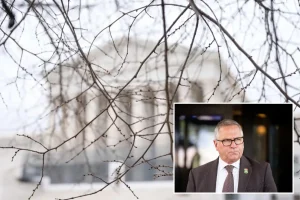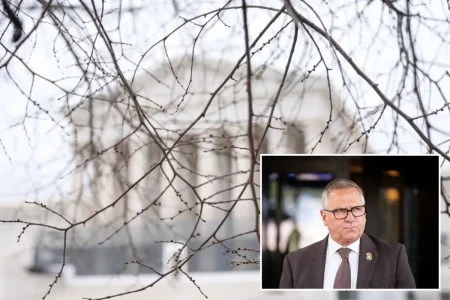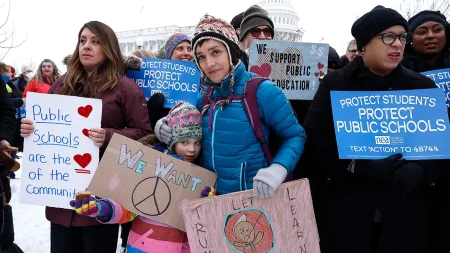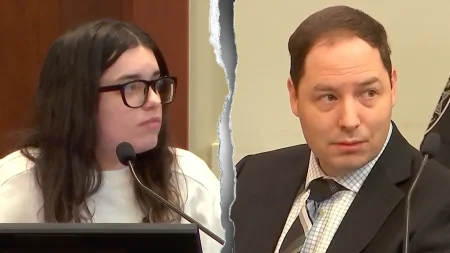Brazil’s Climate Credentials Under the Spotlight as It Prepares to Host COP30
A Nation at the Crossroads: Brazil’s Environmental Leadership Claims Face Scrutiny Ahead of Landmark Climate Summit
As the 30th United Nations Climate Change Conference (COP30) approaches, Brazil finds itself in the global spotlight, eager to present itself as a champion of environmental protection and climate action. With the world’s eyes turning to this South American nation, President Luiz Inácio Lula da Silva’s administration is working diligently to craft an image of environmental stewardship. However, beneath the carefully constructed narrative of leadership lies a complex and often contradictory reality that reveals the tensions between Brazil’s climate ambitions and its economic imperatives.
The selection of Brazil as the COP30 host represents a significant opportunity for the country to reshape its international environmental reputation, which was severely damaged during the presidency of Jair Bolsonaro. Under Bolsonaro’s administration, deforestation in the Amazon rainforest accelerated to alarming rates, environmental enforcement agencies were systematically dismantled, and Indigenous rights were repeatedly undermined. The return of Lula to power in 2023 was greeted with cautious optimism by environmental advocates who remembered his previous administration’s success in reducing deforestation rates. “Brazil is reclaiming its position as a global environmental leader,” Lula declared in his address to the United Nations General Assembly last year, signaling his intention to make environmental protection a cornerstone of his foreign policy.
The Amazon Paradox: Progress and Persistent Challenges
The Amazon rainforest, often called the “lungs of the Earth,” stands at the center of Brazil’s environmental narrative. Since Lula’s return to office, the government has reported a 22% decrease in Amazon deforestation compared to previous years—a notable achievement that officials frequently highlight when discussing Brazil’s climate credentials. Environment Minister Marina Silva, a globally respected conservationist who returned to government after resigning during Lula’s previous term over policy disagreements, has worked to rebuild Brazil’s environmental enforcement capabilities. “We have made significant progress in combating illegal deforestation, but this is just the beginning of a long journey,” Silva stated during a recent press conference in Brasília.
Despite these encouraging developments, environmental researchers and Indigenous communities point to persistent challenges that threaten the integrity of the Amazon ecosystem. Illegal mining operations continue to contaminate rivers with mercury, while land grabbers employ increasingly sophisticated methods to evade detection. Carlos Nobre, one of Brazil’s leading climate scientists, warns that the Amazon is approaching a dangerous tipping point. “We’ve seen reduced deforestation rates, which is positive, but the Amazon continues to lose forest cover. The current reduction isn’t sufficient to prevent the biome from potentially reaching a point of no return within the next two decades,” Nobre explained in an interview. Additionally, recent legislation proposed in Brazil’s Congress threatens to weaken environmental protections and Indigenous land rights, creating tension between the executive branch’s climate commitments and the legislative agenda supported by powerful agricultural interests that maintain significant influence in Brazilian politics.
Economic Realities: The Oil Expansion Contradiction
Perhaps the most glaring contradiction in Brazil’s climate positioning lies in its aggressive expansion of fossil fuel production. While Lula has positioned Brazil as a climate leader on the international stage, his administration has simultaneously supported Petrobras, the state-controlled oil company, in its plans to develop new offshore oil fields in the environmentally sensitive Equatorial Margin near the mouth of the Amazon River. This region, rich in marine biodiversity, has become the focal point of a heated debate between those prioritizing economic development and those advocating for environmental protection.
The government defends these seemingly contradictory positions by emphasizing Brazil’s need for economic resources to fund its transition to renewable energy. “We need to use our natural resources responsibly to finance our sustainable development,” argued Alexandre Silveira, Brazil’s Minister of Mines and Energy, during an industry conference in Rio de Janeiro. “Brazil’s oil production is among the cleanest in the world in terms of carbon emissions per barrel.” This argument, however, fails to address the fundamental incompatibility between expanded fossil fuel production and the Paris Agreement’s goal of limiting global warming to 1.5 degrees Celsius above pre-industrial levels. International climate experts have been unequivocal: new oil and gas development is inconsistent with meeting global climate targets. “You cannot claim climate leadership while expanding fossil fuel production,” remarked Natalie Unterstell, president of the Talanoa Institute, a Brazilian climate policy think tank. “This contradiction undermines Brazil’s credibility on the international stage.”
Indigenous Voices: The Frontline Defenders Seeking Recognition
Indigenous communities, who have historically served as the most effective guardians of Brazil’s forests, find themselves in a precarious position as COP30 approaches. While the Lula administration has taken steps to recognize more Indigenous territories and increase funding for FUNAI, the government agency responsible for protecting Indigenous interests, many Indigenous leaders express frustration with what they perceive as insufficient progress and continued threats to their lands and way of life.
Dinamam Tuxá, executive coordinator of the Articulation of Indigenous Peoples of Brazil (APIB), emphasizes the disconnect between rhetoric and reality. “The government speaks about Indigenous peoples in international forums, but domestically, we continue to face violence, invasions, and the slow pace of land demarcation,” Tuxá stated during a recent protest in Brasília. The Marco Temporal (“Timeframe Thesis”) legislation, which restricts Indigenous land claims to areas occupied in 1988 when Brazil’s constitution was adopted, represents a particular point of contention. Though opposed by Lula, the law was approved by Congress and creates significant legal uncertainty for Indigenous communities. As Brazil prepares to welcome global climate negotiators, the treatment of Indigenous peoples—whose territories show deforestation rates up to 70% lower than surrounding areas—will be a critical test of the country’s commitment to both human rights and environmental protection.
Regional Leadership and International Expectations
Brazil’s role extends beyond its own borders as it seeks to position itself as a leader among developing nations in climate negotiations. The country has historically championed the principle of “common but differentiated responsibilities,” arguing that developed countries, which have contributed most to historical greenhouse gas emissions, should bear a greater burden in addressing climate change. Under Lula’s leadership, Brazil has revitalized the Amazon Cooperation Treaty Organization (ACTO), bringing together the eight countries that share the Amazon basin to coordinate conservation efforts.
The upcoming COP30, scheduled to take place in Belém, a gateway city to the Amazon, carries particular significance for climate diplomacy. It will follow the first global stocktake of the Paris Agreement, which is expected to show that current national commitments fall far short of what is needed to prevent dangerous climate change. “Brazil has a unique opportunity to bridge the gap between developing and developed nations,” explained Izabella Teixeira, former Environment Minister and current member of the UN High-Level Expert Group on Net-Zero Commitments. “But to do so effectively, it must reconcile its domestic contradictions and demonstrate that economic development can occur without environmental destruction.” International partners, particularly European nations that have invested heavily in the Amazon Fund, are watching closely to see whether Brazil’s actions will align with its climate rhetoric as the conference approaches.
The Road to COP30: Reconciling Ambition with Action
As Brazil prepares to host one of the most consequential climate conferences in recent years, the country finds itself at a crossroads. The success of COP30 will depend not only on Brazil’s diplomatic skills but also on its ability to demonstrate genuine progress in addressing its own environmental challenges. This will require difficult choices about economic development, energy policy, and land use that go beyond symbolic gestures or temporary improvements in deforestation statistics.
For Brazil to truly emerge as the climate leader it aspires to be, it must confront the contradictions in its approach. This means accelerating the transition to renewable energy rather than expanding oil production, strengthening rather than weakening environmental protection legislation, and fully recognizing the rights and knowledge of Indigenous peoples. It also means addressing the powerful economic interests that continue to drive deforestation and environmental degradation. “Brazil has all the elements to become a genuine green superpower,” noted Carlos Rittl, a Brazilian environmentalist and senior policy advisor at the Rainforest Foundation Norway. “But this will require more than speeches and short-term policies. It demands a fundamental rethinking of our development model.”
As the world prepares to gather in Belém next month, the question remains whether Brazil can translate its ambitious climate rhetoric into consistent action. The answer will not only determine the success of COP30 but also shape the future of one of the planet’s most crucial ecosystems and the global response to the climate crisis. For a country that has long struggled to balance environmental protection with economic development, hosting COP30 represents both an unprecedented opportunity and a profound challenge—one that will test Brazil’s capacity to reconcile its competing priorities and truly lead by example on the global stage.










